
Sheba May Childs Hargreaves (November 5, 1882 - 1960) was a writer from Oregon, author of The Cabin at the Trail's End, considered one of the pioneer women of the West.

Sheba May Childs Hargreaves (November 5, 1882 - 1960) was a writer from Oregon, author of The Cabin at the Trail's End, considered one of the pioneer women of the West.
Sheba May Childs was born in The Dalles, Oregon, [1] on November 5, 1882, the daughter of Byron Francis and Selena Ann Childs, and was a life-long resident of Oregon and lived at 634 E. 65th St., North, Portland, Oregon. [2]
She graduated from Oregon State Normal School (now Western Oregon University), and was for a time elementary teacher, both in Oregon and California. [1]
She married Fred Hargreaves. Their children were: Holden Stephen, Robert Frederic. [2]
As a writer she specialized in the preparation of advertising books and pamphlets. She was the author of De-occultized occultism: showing wherein Western occultism must differ from Eastern occultism : the one founded on activity, the other on passivity (1924), Why mankind is returning to cremation (1924), The Cabin at the Trail's End: Sunrise (1925), a brochure on the hope of immortality, A Story of Oregon (1928), an historical novel, The letters of Roselle Putnam (1928), quaint society letters of Roselle Putnam, among the most interesting material to be found in the archives of the Oregon Historical Society, Ward of the redskins (1929), stories about the Indians in the Pacific Northwest, Heroine of the prairies: a romance of the Oregon Trail (1930), The Loop (1931), The Hall of Peace (1934), The Business Side of Writing, Buffalo gals. [2] She was a feature writer for publications such the Oregon Journal and The Oregonian . [1]
She was a member of the Oregon Historical Society. [2]
She died in 1960. [1]
The Sheba May Hargreaves papers, 1928-1935 are hosted at the University of Oregon Libraries, Special Collections and University Archives. [1]

Abigail Scott Duniway was an American women's rights advocate, newspaper editor and writer, whose efforts were instrumental in gaining voting rights for women.

George Palmer Putnam was an American publisher, writer and explorer. Known for his marriage to Amelia Earhart, he had also achieved fame as one of the most successful promoters in the United States during the 1930s.
Esther Louise Forbes was an American novelist, historian and children's writer who received the Pulitzer Prize and the Newbery Medal. She was the first woman elected to membership in the American Antiquarian Society.

Wanda Hazel Gág was an American artist, author, translator, and illustrator. She is best known for writing and illustrating the children's book Millions of Cats, the oldest American picture book still in print. Gág was also a noted print-maker, receiving international recognition and awards. Growing Pains, a book of excerpts from the diaries of her teen and young adult years, received widespread critical acclaim. Two of her books were awarded Newbery Honors and two received Caldecott Honors.
Bess Streeter Aldrich was an American author.
Ernest James Haycox was an American writer of Western fiction.

Maxwell Struthers Burt, was an American novelist, poet, and short-story writer.

Lily Adams Beck, née Elizabeth Louisa Moresby was a British writer of short stories, novels, biographies and esoteric books, under the names of L. Adams Beck, E. Barrington and Louis Moresby, and sometimes other variations: Lily Adams Beck, Elizabeth Louisa Beck, Eliza Louisa Moresby Beck and Lily Moresby Adams.
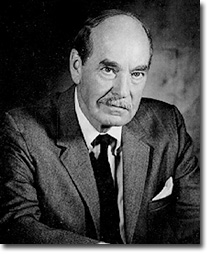
Walter Edwin Havighurst was a critic, novelist, and literary and social historian of the Midwest. He was a professor of English at Miami University.
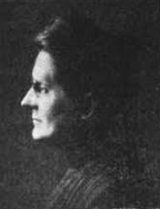
Grace Raymond Hebard gained prominence as a Wyoming historian, suffragist, pioneering scholar, prolific writer, political economist and noted University of Wyoming educator. Hebard's standing as a historian in part rose from her years trekking Wyoming's high plains and mountains seeking first-hand accounts of Wyoming's early pioneers. Today her books on Wyoming history are sometimes challenged due to Hebard's tendency to romanticize the Old West, spurring questions regarding accuracy of her research findings. In particular, her conclusion after decades of field research that Sacajawea was buried in Wyoming's Wind River Indian Reservation is called into question.

Constance Lindsay Skinner was a Canadian writer, critic, historian and editor best known for having conceived the Rivers of America Series for the publisher Farrar & Rinehart.
Alice Henson Ernst was an American playwright, professor and author. She conducted anthropological work among the Native Americans in Oregon. Ernst was also well-known for her history and research of pioneer theater in the northwest. Ernst taught English and drama at the University of Washington and the University of Oregon.

Bertha Muzzy Sinclair or Sinclair-Cowan, néeMuzzy, best known by her pseudonym B. M. Bower, was an American author who wrote novels, fictional short stories, and screenplays about the American Old West. Her works, featuring cowboys and cows of the Flying U Ranch in Montana, reflected "an interest in ranch life, the use of working cowboys as main characters, the occasional appearance of eastern types for the sake of contrast, a sense of western geography as simultaneously harsh and grand, and a good deal of factual attention to such matters as cattle branding and bronc busting." She was married three times: to Clayton Bower in 1890, to Bertrand William Sinclair in 1905, and to Robert Elsworth Cowan in 1921. However, she chose to publish under the name Bower.
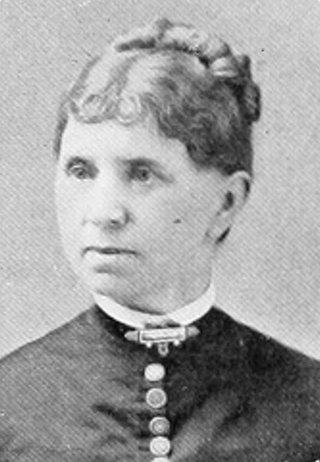
Frances Auretta Fuller (Barritt) Victor was an American historian and historical novelist. She has been described as "the first Oregon historian to gain regional and national attention." She was known for her books about the West and especially Oregon history.
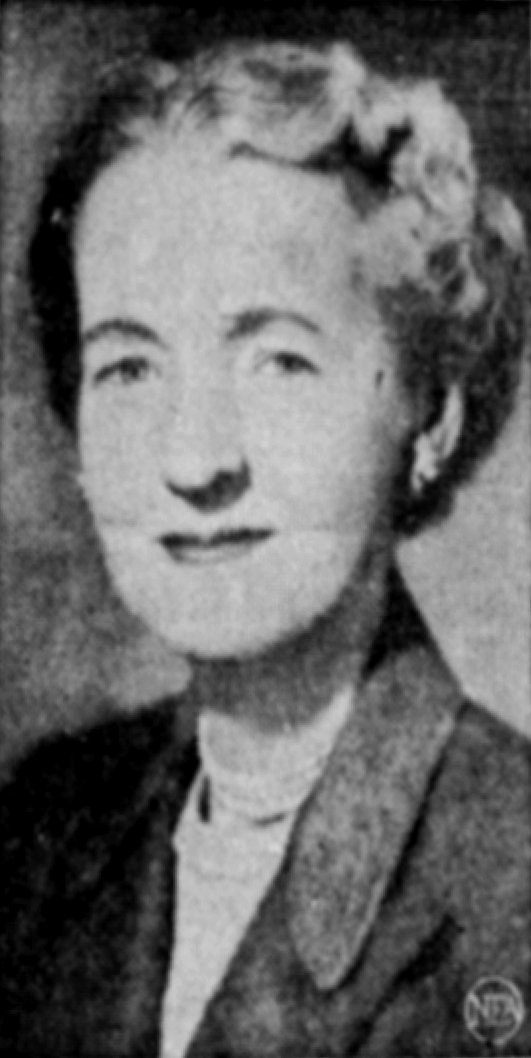
Dorothy McCullough Lee was an American politician and attorney in the U.S. state of Oregon. She was the first female mayor of Portland, Oregon; she also served on the Oregon Legislative Assembly, on the Multnomah County Commission, and on the United States Parole Commission.

Mary Jane Spurlin became Oregon's first woman judge in 1926 after Governor Walter M. Pierce appointed her as a Multnomah County district judge. In 1927, Spurlin was elected president of the Portland Federation of Women's Clubs.

Grace Gallatin Seton Thompson was an American writer and suffragist.

Merry May Talmage was a member of the Church of Jesus Christ of Latter-day Saints and was the wife of James E. Talmage, a member of the Quorum of the Twelve Apostles. She oversaw the Relief Society in Europe from 1924 to 1927 when her husband was the president of the European Mission of the church.
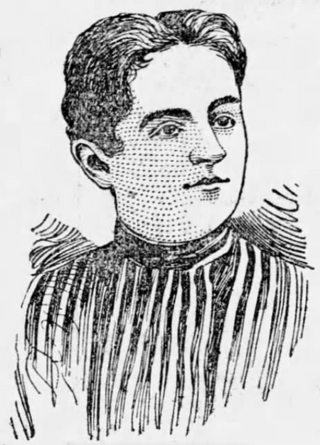
Eliza Putnam Heaton was an American journalist and editor. After her marriage and removal to New York, Heaton began newspaper work, serving first as special writer and afterward as a managing editor in newspaper and syndicate offices, until failing health made arduous tasks impossible. When the New York Recorder was started in 1891, she undertook a task never before attempted by any New York daily – to run a daily news page dealing with women's movements. Marooned in Sicily by ill-health, the author turned for occupation to the study of peasant life, a study eagerly pursued until it was cut short by her death in 1919. Her By-paths in Sicily, could fairly be presented as completed.
Dorothy Binney Putnam Upton Blanding Palmer was an American explorer, socialite, and friend to Amelia Earhart.